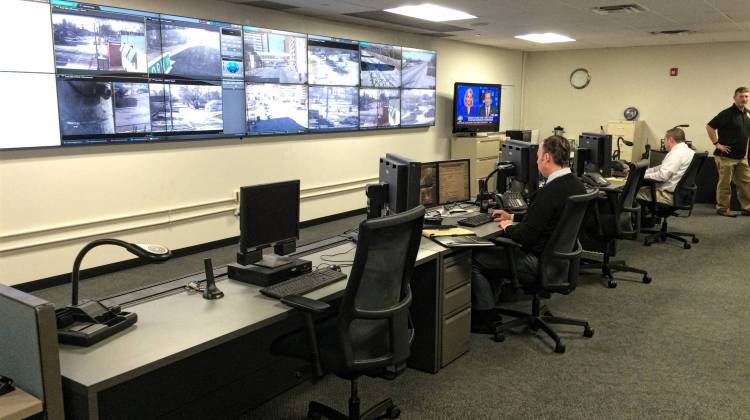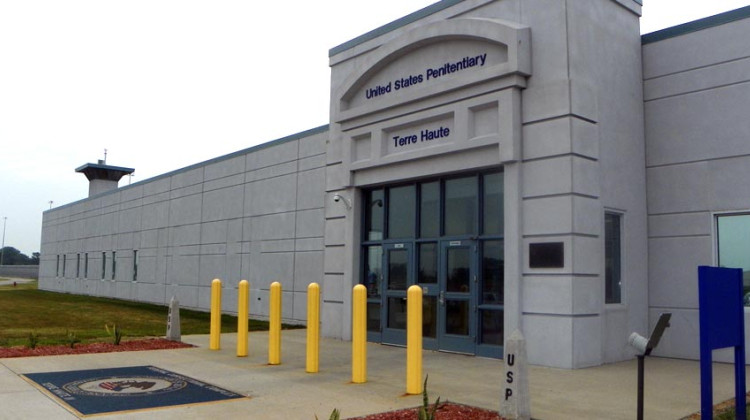
Inside the Regional Operations Center, where IMPD monitors several live cameras around the city.
Ryan Delaney/WFYIINDIANAPOLIS -- The Indianapolis police department is starting to use big data to respond to crime quicker, and even predict where it will happen.
Police officers will now have a dozen data crunchers backing them up as they respond to 9-1-1 calls. Recently-appointed police Chief Troy Riggs launched a real time data center Tuesday, along with the mayor and several other top brass in the department. It's headquartered at the department’s regional operations center on the east side.
"This is not a static computer bank," Mayor Joe Hogsett said, "but rather an organic, ever-changing system looking at crime, using the latest technology and helping our officers be more proactive than ever before."
IMPD staffers will be able to sort through hundreds of crime databases to supply an officer with more information during a traffic stop or emergency call. That's much more information than an officer can search through on his or her way to a call, police commanders said. Staff at the center will be able to look up names, car license plates, or even keywords to give officers more information.
It's about being both tough and smart on crime, Hogsett said. "This data center will give officers on the street more information about possible suspects and situations than ever before," he said.
Riggs said the data center will have three main focuses:
- Real-time crime data and analysis
- Investigative support
- Incident response
The center will help detectives working murders and other serious crimes track down more information about suspects, Riggs said. Researchers will use multiple datasets to link suspects to potential accomplices, previous crimes or vehicles involved.
"They’re working very hard and they need assistance tracking down leads and such," he said. "This center can offer them the assistance they have not had in the past."
As the data center collects more information, it will begin to be proactive. Riggs said IMPD will map crimes such as burglaries to be able to better predict outbreaks of crime and respond to ongoing problems.
But he added it will be used for more than just crime. It will also track quality of life issues that can lead to crime, said Riggs, and be able to assist with information during natural disasters.
"Not only are we trying to positively affect the crime rate, moving it downward," Riggs said, "but we're also thinking that if we have that kind of robust response, that lives will be saved in the event of a disaster."
Contact Ryan: (317) 489-4491 | rdelaney@wfyi.org | @rpatrickdelaney
 DONATE
DONATE







 Support WFYI. We can't do it without you.
Support WFYI. We can't do it without you.